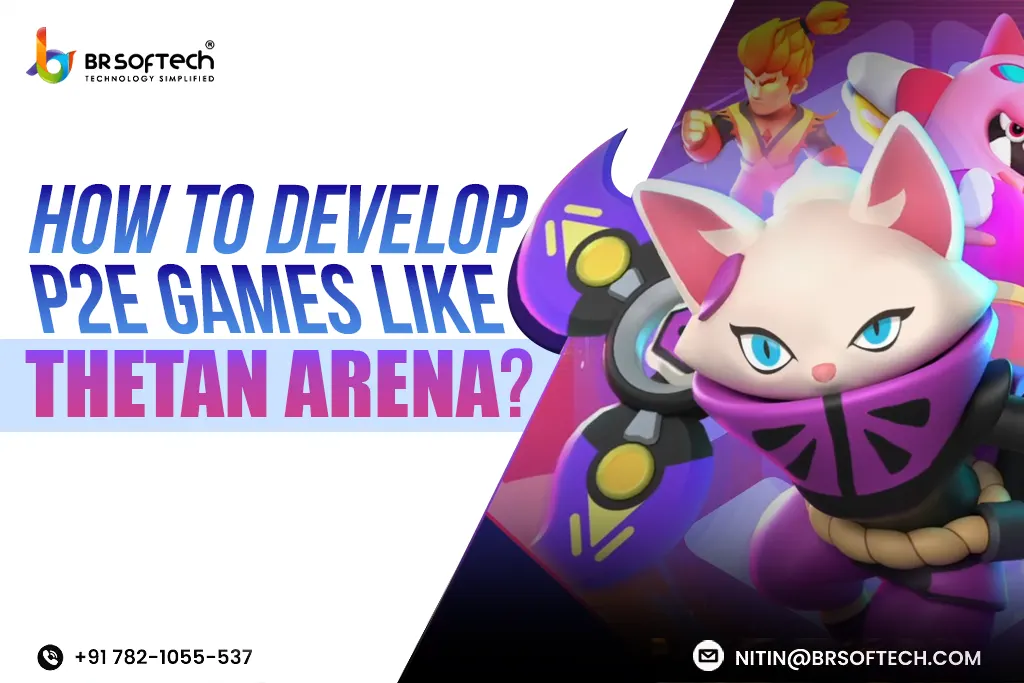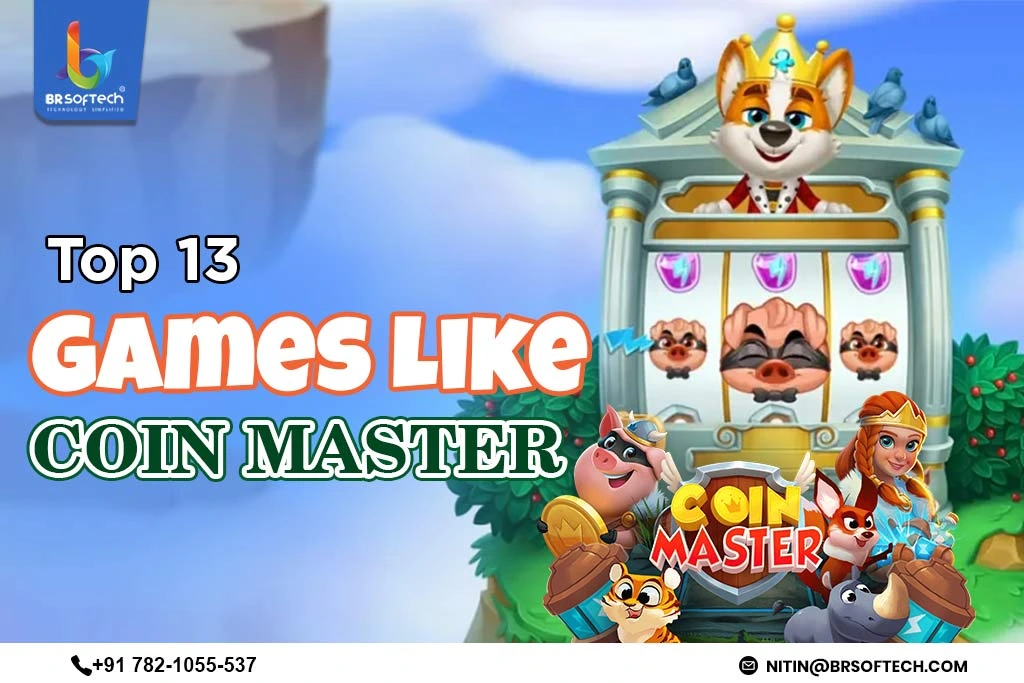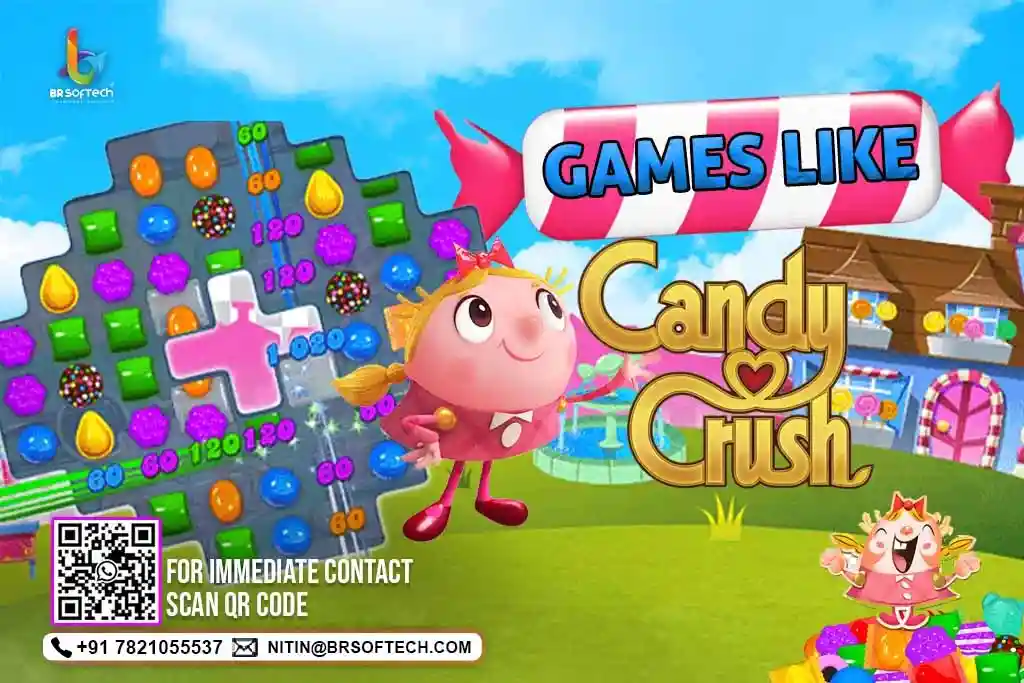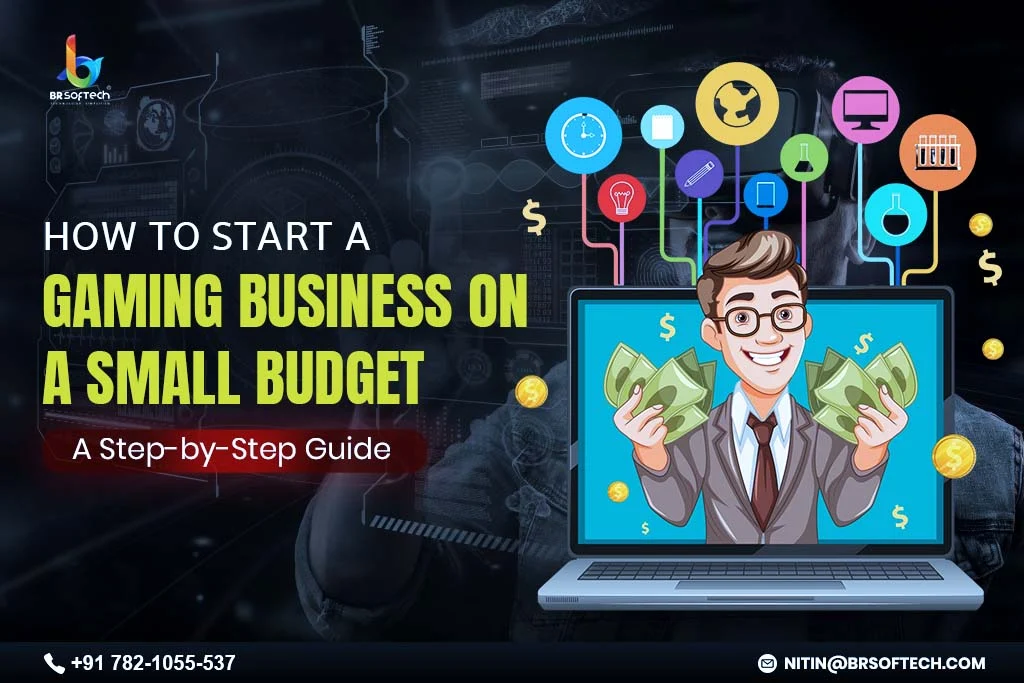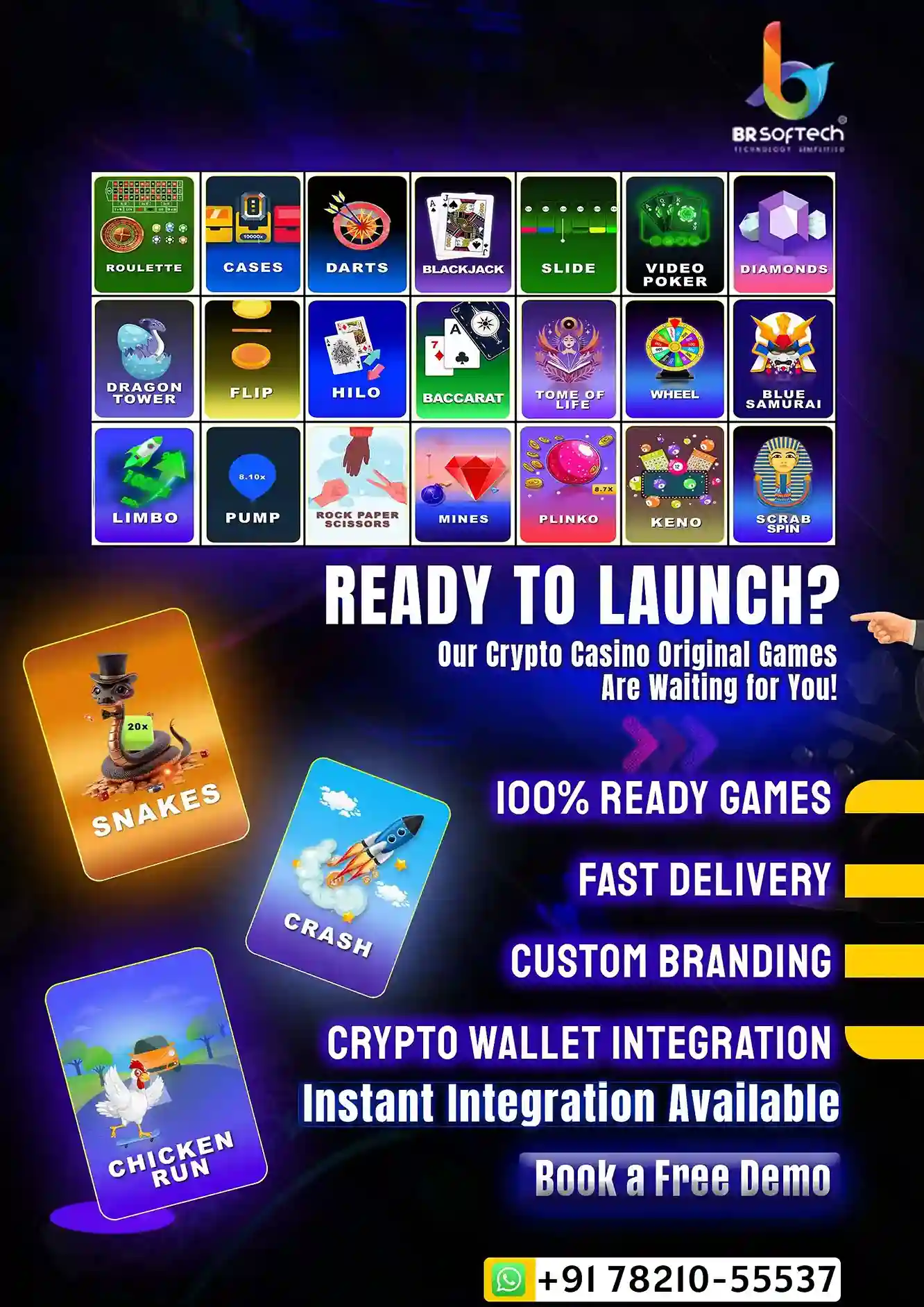The gaming industry is evolving rapidly. Players now seek not only entertainment but also the opportunity to earn money through their gaming activities. Play-to-earn (P2E) games facilitate this by allowing players to gather digital assets, compete against others, and earn real income based on their skills.
Thetan Arena demonstrated that P2E game development can lead to huge success. Within months of its launch, it drew millions of players who enjoyed earning cryptocurrency through a fun, competitive game. Now, many developers ask: how can we build P2E games that capture this same excitement while offering something unique?
Creating successful real-time multiplayer P2E games requires more than copying existing ones. You need engaging gameplay, fair rewards, secure blockchain tech, and unique features. This guide covers everything from Thetan Arena’s success to building your own game.
Key Takeaways
In this blog, we will take you through the essential points to keep in mind when you are creating a game like Thetan Arena. Things that will be covered in this blog are mentioned below:
- The game’s case study.
- Essential features required in a blockchain game.
- Why designing unique NFT heroes matters.
- The importance of implementing a reward system and play-to-earn mechanics.
- Features that are important for developing solid gameplay.
- How BR Softech can help you in streamlining the process.
Thetan Arena Case Study: Key Success Factors
Before diving into how to create P2E games, let’s understand why Thetan Arena became so popular. Let’s dissect what made Thetan Arena successful:
- Fast-Paced Action Gameplay: The game features quick 3-5 minute battles ideal for mobile play. Players can join, play, and earn rewards swiftly without needing hours.
- Accessible Entry Point: Unlike many P2E games needing costly NFTs, Thetan Arena provided free heroes, allowing players to try without spending and invest if they liked it.
- Skill-Based Earning: Better players earned more rewards, keeping competitive gamers engaged because success relied on skill, not spending.
- Multiple Game Modes: Battle Royale, Tower Defense, Superstar, and Deathmatch modes offered variety, preventing boredom by allowing players to switch play styles.
- Social Features: Team play and guilds fostered communities where players made friends, formed teams, and competed together, enriching the game beyond individual battles.
- Regular Updates: New heroes, maps, and events kept the experience fresh, offering players constant new discoveries and collectibles.
These success factors give us valuable insights into how to build engaging P2E games. The main focus isn’t only on blockchain technology, but on crafting truly fun games that also provide earning opportunities.
What are the Essential Features for a Blockchain Game?
When you build games like Thetan Arena, certain features are non-negotiable. Here’s what every successful P2E game needs:
NFT Integration
Players must truly own their in-game items. NFT ownership in gaming means players can buy, sell, or trade their heroes and items outside the game. This ownership creates real value that players can convert to money.
Cryptocurrency Rewards
Your game needs its own token or uses existing cryptocurrencies for rewards. Players earn these tokens through victories, completing missions, or participating in events. Tokens should have real-world value that players can exchange.
Wallet Connection
Easy wallet integration lets players connect their crypto wallets to the game. Many people already have popular wallets like MetaMask or Trust Wallet.
Also Read: How to Integrate MetaMask Wallet Into Blockchain Games?
Transparent Blockchain Records
Every transaction, reward, and NFT transfer should be recorded on the blockchain. This transparency builds trust because players can verify everything is fair and legitimate.
Competitive Gameplay
The game should be enjoyable and competitive. Play-to-Earn (P2E) features add to the experience but do not substitute for solid gameplay. Whether through battles, races, or puzzles, the main game must remain engaging.
Balanced Economy
The play-to-earn game model needs careful economic planning. Too many rewards cause inflation, making tokens worthless, while too few rewards make players lose interest. Finding the right balance is essential.
Designing Unique NFT Heroes for Player Ownership
Heroes are the pivotal characters in games like Thetan Arena. Creating unique NFT heroes requires thoughtful design.
Rarity Levels
Design heroes with different rarity levels:
- Common Heroes: Easy to obtain, basic abilities, good for beginners
- Rare Heroes: Better stats and special abilities
- Epic Heroes: Powerful characters with unique skills
- Legendary Heroes: The rarest and most valuable with exceptional abilities
The rarity of heroes truly influences how powerful they are in gameplay and how much they’re worth in the market. Legendary heroes, in particular, should be special and hard to find, making each one a truly valuable and cherished collectible.
Visual Distinction
Each hero needs a unique appearance and personality. Players should recognize their hero immediately and feel proud showing it off. Invest in quality character design that looks professional and appealing.
Ability Diversity
Every hero should play differently. One might be a tank soaking up damage, another a fast assassin, and another a support character healing teammates. This diversity creates a strategy where team composition matters.
Upgrade Systems
Enable players to enhance their heroes via gameplay, allowing heroes to earn experience, level up, and unlock new abilities. This progression fosters a sense of attachment and investment in particular characters.
Limited Edition Collection
Release special edition heroes for events, seasons, or partnerships. These limited releases create excitement and give collectors rare items that appreciate over time.
Implementing Reward Systems & Play-to-Earn Mechanics
The reward system makes or breaks P2E games. Here’s how to create fair, sustainable earning mechanics:
Multiple Earning Paths
Players earn tokens for winning matches. Victory rewards should be substantial enough to motivate competitive play.
- Daily Quests: Simple tasks like – win 3 matches or play 5 games give casual players earning opportunities even if they don’t win every battle.
- Seasonal Passes: Battle pass systems, where players complete challenges for rewards, keep engagement high throughout seasons.
- Tournament Prizes: Regular tournaments with bigger prize pools attract serious players and create exciting competitive events.
- Hero Rentals: Let players rent their unused heroes to others, earning passive income. This helps free players start without buying NFTs while monetizing collector inventories.
Balanced Token Distribution
Your tokenomics in games must be sustainable:
- Token Generation: Clearly define how new tokens enter circulation through gameplay rewards
- Token Burning: Create mechanisms that remove tokens from circulation, like upgrade costs or entry fees, preventing inflation
- Reward Scaling: Adjust rewards based on economic conditions to maintain token value stability
Also Read: Ethereum Games Token Integration: Opportunities for Game Studios
Anti-Cheat Measures
P2E games attract cheaters trying to exploit earning mechanisms. Implement strong anti-cheat systems that detect bots, multiple accounts, and other fraud attempts. Fair play is essential for healthy game economies.
How to Build a Real-Time Multiplayer Game Like Thetan Arena?
Real-time multiplayer P2E games require a robust technical infrastructure ensuring smooth, lag-free battles.
Server Architecture
Players benefit from quick response times, so choosing server locations all around the world helps bring servers closer, making gameplay smoother and reducing lag for everyone.
Your game must support thousands of simultaneous matches. Cloud services like AWS or Google Cloud are ideal as they automatically scale with more players.
Smart matchmaking pairs players of similar skill levels. This guarantees fair, enjoyable matches rather than experts consistently defeating beginners.
Network Optimization
- Data Compression: Minimize data sent between players and servers to reduce bandwidth requirements and improve performance.
- Lag Compensation: Implement techniques that handle network delays gracefully, so small latency doesn’t ruin the gameplay experience.
- Regional Servers: Place servers in different regions so players connect to nearby servers with the lowest possible latency.
Synchronization
In real-time multiplayer, all players must see the same game state simultaneously. Proper synchronization prevents cheating and ensures fair battles where everyone experiences identical gameplay.
Integrate Smart Contracts for Security and Transparency
Smart contracts in gaming automate rules and ensure fairness without human interference. Working with experts in Smart Contracts in Gaming ensures proper implementation.
What Smart Contracts Handle
- NFT Minting: When new heroes are created, smart contracts automatically mint NFTs with appropriate properties and rarity attributes.
- Reward Distribution: After matches, smart contracts automatically distribute tokens to winners based on predetermined rules, with no manual processing or potential favoritism.
- Marketplace Transactions: When players trade heroes, smart contracts facilitate secure transfers, automatically handling payments and NFT ownership changes.
- Game Rules Enforcement: Core game mechanics can be enforced by smart contracts, making cheating technically impossible rather than just punishable.
Security Benefits
Smart contracts provide transparency where players verify all game rules and economic mechanisms. The code is publicly viewable, building trust that the game operates fairly without hidden manipulations.
Security audits by blockchain experts identify vulnerabilities before launch. Professional auditing prevents exploits that could drain game economies or steal player assets.
What Features Should You Keep in Your Game?
Standing out in the P2E market requires unique features beyond basic P2E mechanics:
Story and Lore
Create rich backstory and world-building. Players engage deeper with games that have meaningful narratives and character development beyond just battles.
Guild Systems
Advanced guild features, including shared resources, guild territories, and cooperative events, create communities. Players stay because of friendships, not just earning opportunities.
Crafting Systems
Let players craft new heroes or items by combining resources. This adds economic layers and gives players ways to profit through item creation and trading.
Land Ownership
Virtual land that players own as NFTs can host events, provide resource generation, or serve as customizable spaces. Land creates another NFT category with investment potential.
Breeding Mechanics
Allow players to breed heroes, creating new NFTs with randomized traits. Breeding introduces genetic systems where rare trait combinations become valuable.
AR Integration
Augmented reality features where heroes appear in real-world environments through phone cameras create memorable, shareable experiences, distinguishing your game from competitors.
Cross-Game Compatibility
Design heroes usable across multiple games in your ecosystem. This interoperability increases NFT utility and value beyond single-game usage.
How BR Softech Can Support You in Creating a Game Like Thetan Arena?
Creating professional P2E games demands specialized skills merging traditional game development with blockchain. As an experienced Web3 game development company, BR Softech offers full support throughout the P2E game development process.
Concept to Launch
We manage all game development stages from concept to market launch, including game design, blockchain integration, NFT development, smart contract creation, testing, and deployment.
Blockchain Expertise
Deep understanding of blockchain game development services ensures proper implementation of wallets, smart contracts, and tokenomics, preventing economic failures that doomed many early P2E games.
NFT Specialization
Our dedicated NFT game development capabilities generate unique, valuable in-game assets while ensuring proper blockchain integration to guarantee true player ownership and seamless marketplace functionality.
Technical Excellence
Experienced developers build scalable, secure infrastructure supporting thousands of concurrent players with minimal lag and maximum security.
Strategic Guidance
Beyond technical expertise, we provide strategic guidance on:
- Economic Design: Creating sustainable tokenomics, preventing inflation or deflation that kills game economies
- Feature Prioritization: Identifying which features to build first for successful MVP launches
- Market Positioning: Understanding the competitive landscape and differentiating your game effectively
- Monetization Strategy: Balancing earning opportunities with sustainable business models
Ongoing Support
Launching is just the beginning; scaling begins post-deployment of the game. We provide continued support, including:
- Content updates and new feature development
- Performance monitoring and optimization
- Community management assistance
- Economic balancing adjustments
- Security maintenance and updates
Working with experienced Play-to-Earn Game Development specialists dramatically increases the probability of success by avoiding common pitfalls and implementing proven best practices.
Conclusion
Creating P2E games like Thetan Arena with exclusive features is challenging but rewarding. Blockchain enhances great games but doesn’t replace fun and engaging gameplay. Success requires balancing gameplay, earning systems, security, features, and presentation. Good tokenomics can’t fix boring gameplay; fun games need sustainable economics.
Now is the time to develop innovative games that surpass existing options. By analyzing Thetan Arena’s success and adding unique features, you can create engaging experiences that draw dedicated communities. Whether you’re an established studio or an entrepreneur with a game-changing idea, partnering with an experienced game development company skilled in traditional and blockchain development is key.
FAQs (Frequently-Asked Questions)
Q1. How long does it take to develop a P2E game like Thetan Arena? Ans. Development timelines depend on complexity. A basic P2E game with essential features takes 6-9 months, including design, development, blockchain integration, NFT creation, and testing. More complex games with advanced features like land ownership or breeding systems can take 12-18 months. Starting with an MVP speeds market entry, with updates based on player feedback. Experienced developers reduce timelines compared to learning blockchain development from scratch.
Q2. What is the cost of developing a P2E game? Ans. P2E game development costs depend on scope, features, and quality. Basic games with simple mechanics and limited NFT collections cost $50,000-$100,000. Mid-range games with more features, game modes, and better graphics are $100,000-$250,000.
AAA-quality games with extensive content and advanced blockchain tech can cost over $250,000-$500,000. Monthly costs for servers, updates, marketing, and community management range from $10,000 to over $50,000.
Q3. Do I need blockchain knowledge to develop a P2E game? Ans. You don’t need to be a blockchain expert to create P2E games; understanding how blockchain enhances gaming is key. Blockchain specialists can handle technical implementation. Focus on game design, player experience, and business strategy. Partner with Web3 developers to blend gaming and blockchain expertise, resulting in better outcomes than mastering both. Successful P2E games often come from diverse teams rather than individuals knowing everything.





